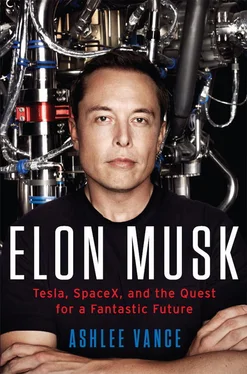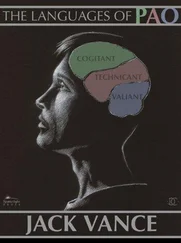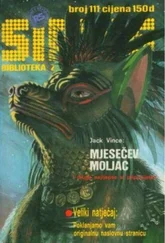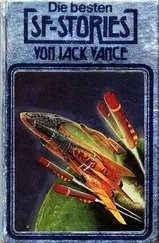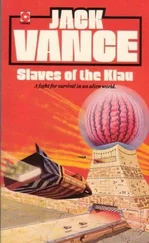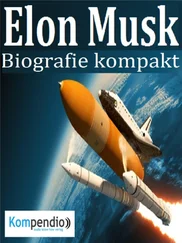MUSK LAND WAS A REVELATION.
I’d come to Silicon Valley in 2000 and ended up living in the Tenderloin neighborhood of San Francisco. It’s the one part of the city that locals will implore you to avoid. Without trying very hard, you can find someone pulling down his pants and pooping in between parked cars or encounter some deranged sort bashing his head into the side of a bus stop. At dive bars near the local strip clubs, transvestites hit on curious businessmen and drunks fall asleep on couches and soil themselves as part of their lazy Sunday ritual. It’s the gritty, knife-stabby part of San Francisco and turned out to be a great place to watch the dotcom dream die.
San Francisco has an enduring history with greed. It became a city on the back of the gold rush, and not even a catastrophic earthquake could slow San Francisco’s economic lust for long. Don’t let the granola vibes fool you. Booms and busts are the rhythm of this place. And, in 2000, San Francisco had been overtaken by the boom of all booms and consumed by avarice. It was a wonderful time to be alive with just about the entire populace giving in to a fantasy—a get-rich-quick, Internet madness. The pulses of energy from this shared delusion were palpable, producing a constant buzz that vibrated across the city. And here I was in the center of the most depraved part of San Francisco, watching just how high and low people get when consumed by excess.
Stories tracking the insanity of business in these times are well-known. You no longer had to make something that other people wanted to buy in order to start a booming company. You just had to have an idea for some sort of Internet thing and announce it to the world in order for eager investors to fund your thought experiment. The whole goal was to make as much money as possible in the shortest amount of time because everyone knew on at least a subconscious level that reality had to set in eventually.
Valley denizens took very literally the cliché of working as hard as you play. People in their twenties, thirties, forties, and fifties were expected to pull all-nighters. Cubicles were turned into temporary homes, and personal hygiene was abandoned. Oddly enough, making Nothing appear to be Something took a lot of work. But when the time to decompress arrived, there were plenty of options for total debauchery. The hot companies and media powers of the time seemed locked in a struggle to outdo each other with ever-fancier parties. Old-line companies trying to look “with it” would regularly buy space at a concert venue and then order up some dancers, acrobats, open bars, and the Barenaked Ladies. Young technologists would show up to pound their free Jack and Cokes and snort their cocaine in porta-potties. Greed and self-interest were the only things that made any sense back then.
While the good times have been well chronicled, the subsequent bad times have been—unsurprisingly—ignored. It’s more fun to reminiscence on irrational exuberance than the mess that gets left behind.
Let it be said for the record, then, that the implosion of the get-rich-quick Internet fantasy left San Francisco and Silicon Valley in a deep depression. The endless parties ended. The prostitutes no longer roamed the streets of the Tenderloin at 6 A.M. offering pre-commute love. (“Come on, honey. It’s better than coffee!”) Instead of the Barenaked Ladies, you got the occasional Neil Diamond tribute band at a trade show, some free T-shirts, and a lump of shame.
The technology industry had no idea what to do with itself. The dumb venture capitalists who had been taken during the bubble didn’t want to look any dumber, so they stopped funding new ventures altogether. Entrepreneurs’ big ideas were replaced by the smallest of notions. It was as if Silicon Valley had entered rehab en masse. It sounds melodramatic, but it’s true. A populace of millions of clever people came to believe that they were inventing the future. Then … poof! Playing it safe suddenly became the fashionable thing to do.
The evidence of this malaise is in the companies and ideas formed during this period. Google had appeared and really started to thrive around 2002, but it was an outlier. Between Google and Apple’s introduction of the iPhone in 2007, there’s a wasteland of ho-hum companies. And the hot new things that were just starting out—Facebook and Twitter—certainly did not look like their predecessors—Hewlett-Packard, Intel, Sun Microsystems—that made physical products and employed tens of thousands of people in the process. In the years that followed, the goal went from taking huge risks to create new industries and grand new ideas, to chasing easier money by entertaining consumers and pumping out simple apps and advertisements. “The best minds of my generation are thinking about how to make people click ads,” Jeff Hammerbacher, an early Facebook engineer, told me. “That sucks.” Silicon Valley began to look an awful lot like Hollywood. Meanwhile, the consumers it served had turned inward, obsessed with their virtual lives.
One of the first people to suggest that this lull in innovation could signal a much larger problem was Jonathan Huebner, a physicist who works at the Pentagon’s Naval Air Warfare Center in China Lake, California. Huebner is the Leave It to Beaver version of a merchant of death. Middle-aged, thin, and balding, he likes to wear a dirt-inspired ensemble of khaki pants, a brown-striped shirt, and a canvas khaki jacket. He has designed weapons systems since 1985, gaining direct insight into the latest and greatest technology around materials, energy, and software. Following the dot-com bust, he became miffed at the ho-hum nature of the supposed innovations crossing his desk. In 2005, Huebner delivered a paper, “A Possible Declining Trend in Worldwide Innovation,” which was either an indictment of Silicon Valley or at least an ominous warning.
Huebner opted to use a tree metaphor to describe what he saw as the state of innovation. Man has already climbed past the trunk of the tree and gone out on its major limbs, mining most of the really big, game-changing ideas—the wheel, electricity, the airplane, the telephone, the transistor. Now we’re left dangling near the end of the branches at the top of the tree and mostly just refining past inventions. To back up his point in the paper, Huebner showed that the frequency of life-changing inventions had started to slow. He also used data to prove that the number of patents filed per person had declined over time. “I think the probability of us discovering another top-one-hundred-type invention gets smaller and smaller,” Huebner told me in an interview. “Innovation is a finite resource.”
Huebner predicted that it would take people about five years to catch on to his thinking, and this forecast proved almost exactly right. Around 2010, Peter Thiel, the PayPal cofounder and early Facebook investor, began promoting the idea that the technology industry had let people down. “We wanted flying cars, instead we got 140 characters” became the tagline of his venture capital firm Founders Fund. In an essay called “What Happened to the Future,” Thiel and his cohorts described how Twitter, its 140-character messages, and similar inventions have let the public down. He argued that science fiction, which once celebrated the future, has turned dystopian because people no longer have an optimistic view of technology’s ability to change the world.
I’d subscribed to a lot of this type of thinking until that first visit to Musk Land. While Musk had been anything but shy about what he was up to, few people outside of his companies got to see the factories, the R&D centers, the machine shops, and to witness the scope of what he was doing firsthand. Here was a guy who had taken much of the Silicon Valley ethic behind moving quickly and running organizations free of bureaucratic hierarchies and applied it to improving big, fantastic machines and chasing things that had the potential to be the real breakthroughs we’d been missing.
Читать дальше
Конец ознакомительного отрывка
Купить книгу
